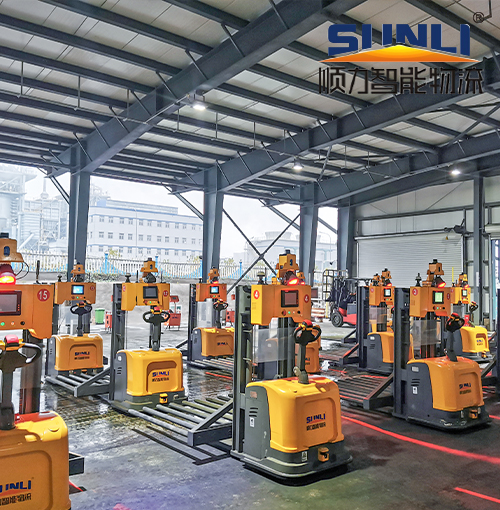Compact Storage Systems refer to storage solutions that can store capacity in limited space. They reduce or cancel aisle space, and use automation technology to improve storage density, so as to achieve warehouse management. However, in some special environments, such as places where dust and flammable and explosive substances exist, the use of dense storage systems requires special consideration of safety and protective measures.
Application in dust environment
Dust environment usually exists in wood processing, flour mills, chemical plants and other places. There are a large number of suspended particles in these environments, which may cause fire or explosion risks if not handled properly. Therefore, the following measures need to be taken when applying dense storage systems in these environments:
Fire protection design: ensure that the storage system is made of nonflammable or flame retardant materials and equipped with an automatic fire extinguishing system.
Dust proof design: closed storage unit is used to reduce the chance of dust entering the system. Clean the dust accumulated inside and outside the system regularly to avoid dust accumulation.
Ventilation system: good ventilation can help reduce the dust concentration in the air and reduce the risk of explosion.

Monitoring and alarm: install dust concentration monitoring equipment. Once the dust concentration exceeds the standard, immediately start the alarm and take corresponding measures.
Staff training: provide safety training for operators to ensure that they understand the operation specifications and emergency handling procedures under dust environment.
Application in explosion-proof environment
Explosion proof environment mainly exists in the storage and processing sites of flammable and explosive substances such as petroleum, chemical industry, natural gas, etc. When using a dense storage system in such an environment, strictly follow the relevant safety standards and specifications to ensure that the equipment will not become a potential ignition source. Specific measures include:
Explosion proof certification: all electrical equipment and automation systems have passed the explosion-proof certification to ensure that they will not produce sparks or high temperatures in flammable and explosive environments.
Grounding and shielding: ensure that all metal parts are well grounded to prevent electrostatic accumulation; At the same time, electromagnetic shielding shall be applied to sensitive areas to avoid accidents caused by electromagnetic interference.
Gas monitoring: install a combustible gas detector to monitor the concentration of combustible gas in the air in real time, and link with the control system. Once abnormal conditions are detected, take immediate action.
Emergency plan: formulate a detailed emergency plan, including emergency evacuation routes, location of fire-fighting facilities and other information, and organize regular drills.
Regular maintenance: strengthen the inspection and maintenance of the storage system, and timely find and repair potential security risks.
summary
It is a complex task to use dense storage systems in dust and explosion-proof environments, which requires comprehensive consideration of multiple security factors. Appropriate design, protective measures and technical means can effectively reduce the possibility of accidents and ensure the safe and stable operation of the storage system. At the same time, the enterprise should attach importance to the safety education and training of employees, improve the safety awareness and emergency response ability of all employees, and jointly create a safe working environment.









